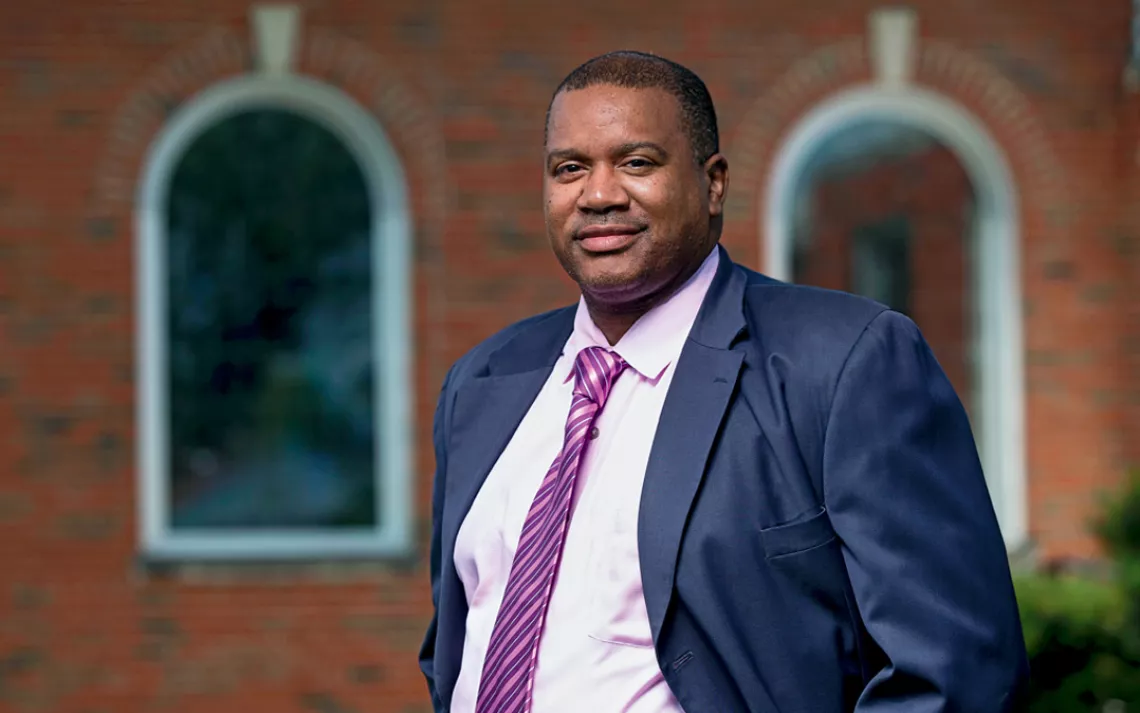Speaking Out for Clean Energy
Reverend Roderick Burton got solar panels for his church and advocates for the Clean Power Plan

Reverend Rodrick Burton, a clean energy advocate in St. Louis | Photo by Whitney Curtis
Name: Reverend Rodrick Burton
Location: St. Louis, Missouri
Contribution: Got solar panels for his church and advocates for the Clean Power Plan
When did you first start thinking about clean energy? When I was the interim pastor at the New Northside Missionary Baptist Church and Community Center about four and a half years ago, I became interested in reducing costs in the church. I thought about getting solar panels. Once I became pastor, clean energy was a priority out of pragmatism, but also in the Bible it says that everybody is supposed to be a good steward of Earth.
How much money do you save with solar panels? We save $3,000 annually. But we're leasing the panels. In 20 years, when we own the panels, our electric bill will go down 40 percent.
Do you see any other benefits to going solar? The air quality in St. Louis is really terrible. In the African American community, and even in my own family, asthma is a problem, a big problem. We have, across the river, a number of fossil fuel producers and plants that just put all types of smoke out that affect air quality. I am able to say to my congregation, "Hey, listen. Our climate is changing. Some of you have asthma. Some of you have COPD [chronic obstructive pulmonary disease]. These are all tied together."
How do you work with the Sierra Club? Some people from the Sierra Club came to a meeting at Washington University where I was on a panel of faith leaders discussing climate change. They invited me to do an ad in the St. Louis American, an African American weekly, asking our senators to support the Clean Power Plan. I also did some ads on African American radio stations. So a whole lot of African Americans, hundreds of people, came to me and said, "I heard you on the radio."
Why is it important for you to speak about the environment and clean power? Communities like mine that are working-class poor have very little money for health care, and the struggle to get health care is a problem. As the climate continues to get worse, then guess what? More people are going to be affected even worse. It's all connected. It's an issue that we cannot ignore, and our voice has to be in the mix with everybody else's.
 The Magazine of The Sierra Club
The Magazine of The Sierra Club



